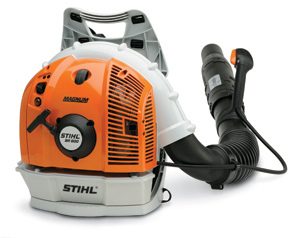
There are numerous processes that require low pressure air in industrial and commercial applications. In order to carry out these processes cost-effectively, regenerative commercial blowers in GA have become a widely-used source for low pressure air.
The blowers are typically used for small air capacities at greater pressures that are beyond the performance scope of centrifugal blowers. The regenerative blowers function on compressor laws as opposed to fan laws.
Under compressor laws, surges in pressure or vacuum levels often result in a higher workloads, and greater heat production. As pressure or vacuum is elevated, the volumetric ability of these blowers decreases.
This is contrary to centrifugal blowers operating on fan laws, where larger volumes increase the work load, and as pressure or vacuum levels are elevated, volume is decreased, and the work load and heat load are reduced. Because of this, different defenses are required for the protection of regenerative blowers.
Many factors can cause regenerative blowers to fail. Generally, the most common reasons are over-temperature, intake of foreign matter, or unsuitable environments. For each of these conditions, there could be a number of installation or operational issues that contribute to the situation.
Bearing Failure: The bearings that are used in commercial blowers in GA are typically shielded sealed ball bearings that utilize high temperature grease. After years of operation, bearings will need to replaced due to common wear. Premature breakdown of bearings can be caused by over-temperature working circumstances.
Absorption of Foreign Matter: This is normally the result of poor filtration at the intake of the blower. Regenerative blowers can be used for either pressure or vacuum service, so there are two different styles of intake protection.
For vacuum service, an in-line filter is essential to ensure that foreign matter from the process is unable to enter the blower. Because normal vacuum applications are dust-collection or material-conveying, it is important that this protection is part of the installation. For pressure functions, an air intake filter is required. They can be in the form of either an automotive-style cartridge type filter or a wire mesh strainer.
Function Outside of the Performance Boundaries: When considering commercial blowers in GA for a particular application - either pressure or vacuum - the requirements must be within the blower’s performance abilities.
One feature of regenerative blowers, is that the air passing through the blower cools it. When the blower is operated at excessive pressure or vacuum levels, with insufficient air flow passing through it, higher operating temperatures will result and can cause untimely bearing failure.
Environmental Conditions: Applications in which the ambient air contains incompatible chemicals, high salt levels, or extreme moisture can result in damage to the blower. When uncommon gaseous chemicals are present in the environment, a chemical/material compatibility chart should be reviewed prior to installation.
Vibration: Regenerative blowers may be attached in only two positions. The most common is the horizontal position and the second is vertical with the impeller facing down. Mounting in varying degrees from these positions may cause bearing stress, and/or vibration.
Blowers can deliver ideal performance if they are maintained properly, and protected from any operational failure. Technical support and information is a valuable asset to anyone designing/installing a regenerative blower system.
You can rely on us for assistance to ensure you have covered all necessary requirements for reliable and proper commercial blowers in GA. Call us today and speak with one of our experts!



Notifications